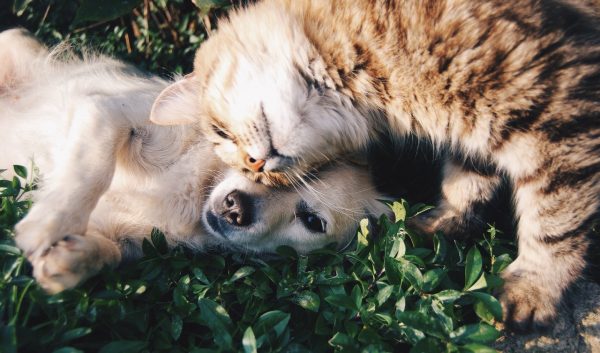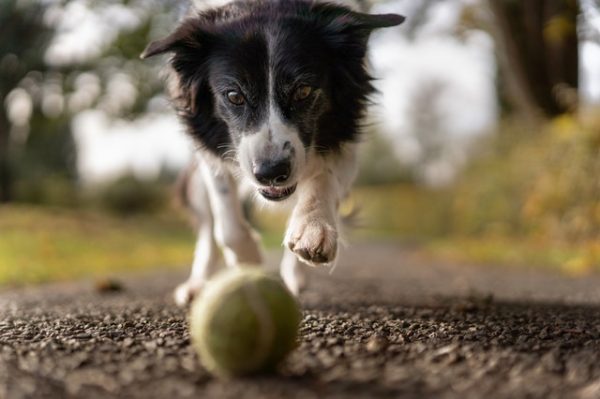Most parents would agree that one of the best things about having children is watching them grow up and become responsible adults. One day, you hand them the car keys and say “good luck” as they head off to college or their first job. And while there are many important lessons to teach your children, one topic that often gets overlooked is how to prepare them for owning a pet. Pets can be a great addition to any family, but they come with many responsibilities. In this blog post, we will discuss some tips on preparing your children for the responsibility of owning a pet!

1. Teach Your Children To Respect Animals
If they don’t understand what it means not to hurt or abuse an animal, then they won’t be able to do right by their future pets!
Respecting animals also includes taking care of them. If your children see you cleaning up after your dog or feeding your cat, they will be more likely to do the same when it’s their turn.
One way to teach respect for animals is to have them volunteer at a local animal shelter. This will help them learn how to take care of pets and allow them to meet new furry friends!
2. Determine Which Type Of Pet Would Best Suit Them
When it comes to owning a pet, you want your child to be responsible for making decisions about what kind of animal they get and how much work will go into caring for it! Children must understand what type of pet would best suit their lifestyle before purchasing one so they don’t end up with something they can’t handle or won’t take care of properly. Children who are interested in getting dogs might consider adopting from an animal shelter since these animals often have more training than those bought from breeders; cats tend not to require much attention other than food and water each day, unless your family wants them outside, which could lead to problems. If space isn’t an issue, then rabbits make good pets because there’s no need for walks outside or regular grooming as they self-groom.
All this being said, though, there are many other options when considering what kind of pet would best suit your child’s lifestyle, so don’t limit them – ask questions about how much time they’d like to spend with their new friend and see if any animals fit into those plans before making a decision! The point is that children should understand the responsibilities involved in owning an animal from day one because it will help them make good decisions later on down the road.
3. Teach Your Children How To Feed Their Pets
One of the most important things your children will need to know when owning a pet is properly feeding it. Depending on the type of animal, this could involve different techniques and foods.
For example, if you have a dog, you’ll need to purchase or make food specifically for them; commercial dog food can be expensive. With some research, you’ll be able to find quality cheap dog foods. You’ll also need to show your children how much and how often to feed their new friend – overfeeding can lead to health problems down the road!
With cats, you’ll just need to make sure they always have fresh water and put out some dry food each day. And as we mentioned before, rabbits self-groom, so there’s not too much maintenance there, outside of feeding them hay and fresh vegetables every once in a while.
No matter what type of pet your child chooses, be sure to teach them how to feed it properly! This includes reading the food labels, understanding the dietary needs of their new friend, and knowing when/how much to give. Teaching these things at an early age will help ensure that they continue taking care of their pet as they get older.
4. Teach Your Children How To Clean Up After Their Pet
This is another extremely important responsibility that comes with owning a pet. Not only will your child need to pick up after their animal when it does its business, but they’ll also need to clean any food or water bowls and cages/homes on a regular basis.
Depending on the type of pet, this could involve different cleaning supplies and techniques. Cats, for example, often use litter boxes that will need to be scooped out every day – teaching your children how to do this before they even get a pet will help avoid any nasty surprises down the road! On the other hand, dogs need to be house trained to do their business outside. But they still need to be cleaned up after. With other animals like rabbits, you’ll just need to make sure their cage is regularly hosed down (and dried) and that all their food and water dishes are cleaned and dried as well.
5. Teach Your Children How To Safely Play With Their Pet
Just as with any other friend, children need to know how to safely play with their pets. Not all animals enjoy being hugged or played in the same way, and some can even be dangerous if not handled properly.
Dogs are a great example of this. They love to play but need to be taught not to jump up on people – otherwise, they could easily knock someone over and cause serious injury. You’ll also need to teach your children how not to tease or scare their dog since this could lead to them biting out of fear.
Cats also require special handling. They’re often independent creatures who like their own space, so don’t expect them to want to be cuddled constantly (unless they’re very young kittens). Instead, teach your children how to pet cats properly, so they don’t end up getting scratched. And remind them not to tease or scare the cat either, as this could lead to it scratching or biting.
No matter what type of animal your child chooses, be sure to talk to them about how to safely play with it! This includes knowing its body language and understanding when it’s had enough. Teaching these things at an early age will help ensure that their new friend stays safe and healthy for years to come.

6. Teach Your Children How To Spot Illness In Their Pet
Last but not least, children need to know how to spot signs of illness in their pets. Just like us humans, animals can get sick too, and they aren’t always able to tell us when they don’t feel well.
Dogs are a great example of this since they often hide pain, which is why it’s so important for owners to keep an eye on them. If your child has a dog that starts limping or doesn’t want to play as much anymore, then it may be time for a vet visit ASAP! Cats also tend to hide any health issues until things are really bad, which means regular vet checkups are essential if you want them to live long, happy lives with you. Rabbits tend not to take too much care of themselves and can be quite hard to spot illness in, so regular health checkups from your vet are a must.
No matter what type of pet you choose, teaching your children how to spot signs of illness is extremely important! This includes knowing the normal behavior and habits of their pet and being able to identify when something is wrong. Teaching these things at an early age will help ensure that their new friend stays healthy and happy for years to come.
So, if you’re thinking about getting a pet for your family, be sure to teach your children all they need to know beforehand! Not only will this make taking care of the animal easier for them, but it’ll also help keep both the pet and child safe and healthy for years to come.

